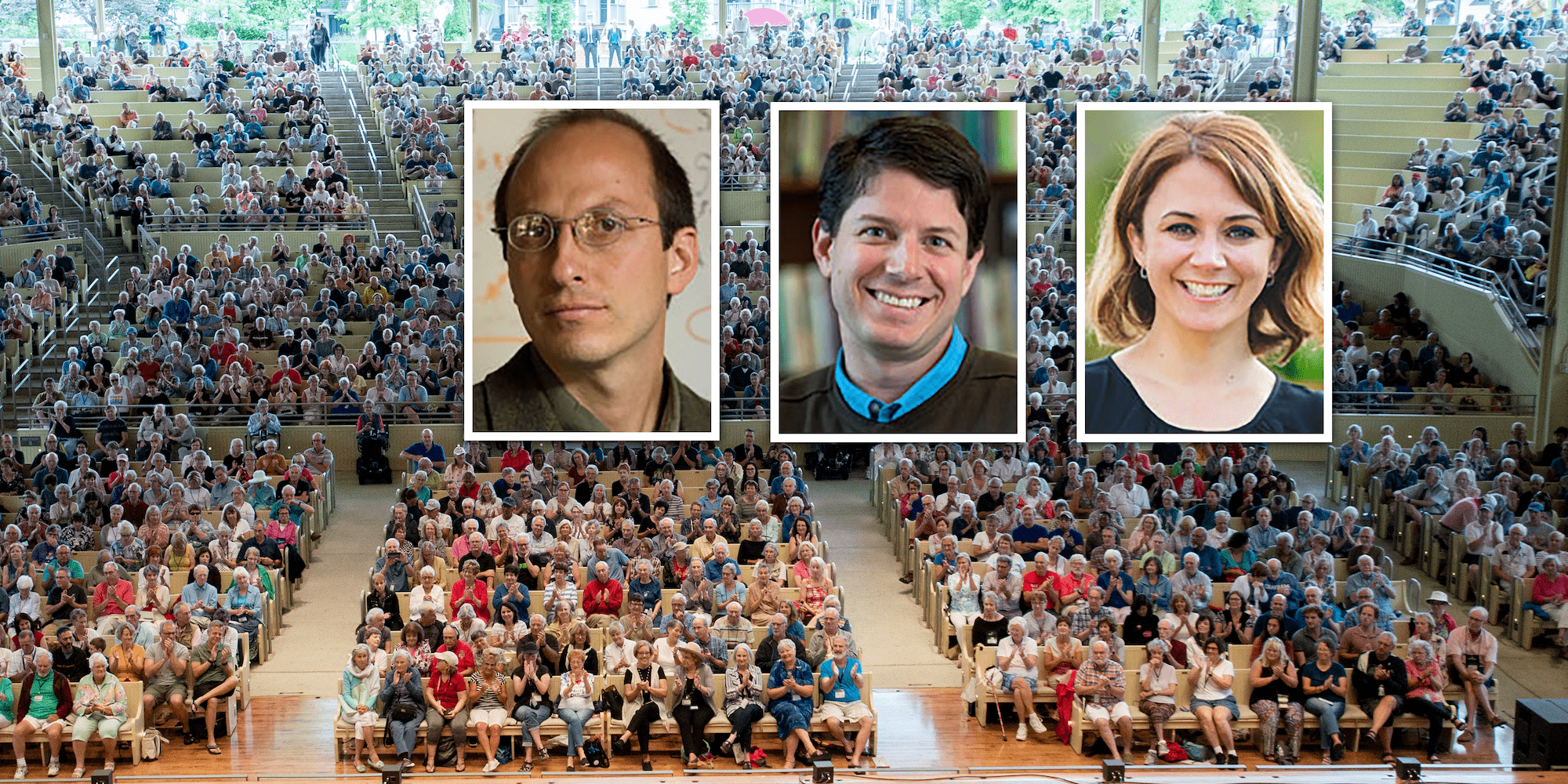
Chautauqua Invites CMU Professors to AI and Humanity Panel
Experts speak about the ethics of technology
Each summer, 100,000 philanthropists, artists, politicians and community leaders gather at the Chautauqua Institution for a nine-week season of lectures, courses and interactive programming. Invited speakers include former presidents, world-renowned musicians and activists and subject matter experts from all disciplines. The 2020 series, held virtually due to the coronavirus pandemic, included Carnegie Mellon University experts in both panel discussions and featured lectures.
David Danks, L.L. Thurstone Professor of Philosophy & Psychology, and head of the philosophy department, delivered a presentation for the Institute's African American Heritage House (AAHH). Danks spoke about the many algorithms impacting people's lives today, and the ways that these algorithms are using biased data to make decisions that directly harm vulnerable communities.
"An algorithm is, quite simply, a recipe or a series of steps for a computer to follow," Danks said. "The problem occurs when we use historically biased data sets to train these algorithms." He referenced examples such as algorithms used for policing that try to predict where crimes might occur. Danks points out that the data doesn't identify crimes — it identifies arrest records, which are known to be racially biased. "That algorithm will then replicate biases against communities of color," Danks said. "Right now, algorithms deliver an objective measure of a deeply culturally, socially, psychologically biased world."
Danks concludes that regulatory actions and government policy could incentivize companies and organizations to address bias in their algorithms.
CMU Emeritus Trustee Erroll Davis, who serves as president of the AAHH, led a live Q&A session following the presentation.
Furthering this theme of algorithmic bias and its impact, the panel discussion included Danks along with Illah R. Nourbakhsh, K&L Gates Professor of Ethics and Computational Technologies and director of the Community Robotics, Education and Technology Empowerment Lab. The professors were joined by former Assistant Dean for Educational Initiatives in the Dietrich College for Humanities at CMU, Jennifer Keating, who recently collaborated with Nourbakhsh to publish the book AI and Humanity (MIT Press).
"People think of technology as value-neutral, but AI systems aim to optimize data, and embody value in those tasks," said Nourbakhsh.
The trio spoke about the use of biased data in algorithms used to determine who is granted a loan, emphasizing how historical information on loan repayment reflects racially-biased practices in granting (or denying) credit to borrowers from communities of color.
Nourbakhsh said, "Unless algorithms are developed intentionally to get rid of bias, they have been shown to harm equity and harm justice."
Keating emphasized the importance of bringing discussions of ethics into every classroom, giving students repeated, ritualized exposure to questions of what gets prioritized in every data set and how their work impacts society. As a Senior Lecturer and the Writing in the Disciplines Specialist at the University of Pittsburgh, she pointed to the responsibilities of educators to assist the next generation in making ethical decisions about the tools they design, build and use.
CMU's Experts On AI and Humanity
David Danks and Ilah Nourbakhsh, along with former CMU faculty member Jennifer Keating, speak about the ethics of technology: scientific, corporate and personal responsibility.
David Danks delivers a presentation for Chautauqua's African American Heritage House entitled "Fixing the Cultural Biases in Algorithms."